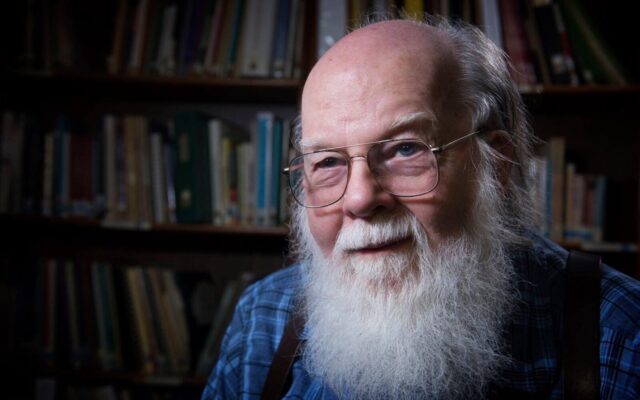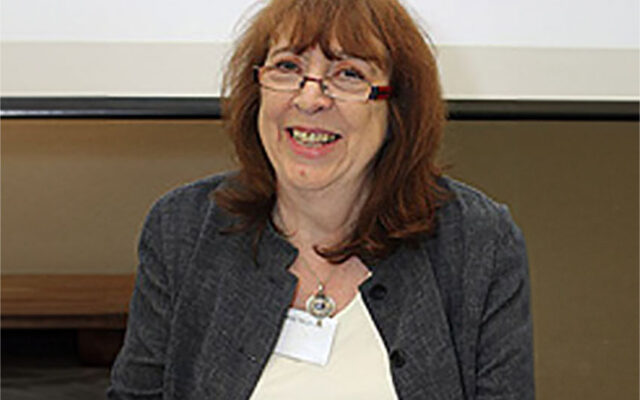Obituary – Alan Corbett – An amazing pioneer in disability psychotherapy – Noelle Blackman recalls the distinguished career of Alan Corbett who died late last year.
Dr Alan Corbett was a clinical psychotherapist, author, researcher, and teacher, but more than all of these amazing achievements he was a really lovely man and I am proud to have been able to call him my friend. He sadly died on 22 December 2016 after having been diagnosed with cancer a few years earlier.
In 1991, Alan joined Respond. Together with the founder Tamsin Cottis they went on to develop what may well be the first organisation exclusively providing psychoanalytical psychotherapy for men, women, and children with learning disabilities.
Tamsin and Alan worked closely with Valerie Sinason, then head of what was known as ‘The Mental Handicap Team’ at the Tavistock Clinic in London, to develop Respond into a nationally recognised and admired institution. Corbett and Cottis undertook some of the first psychotherapeutic work at Respond, and Sinason served as the first clinical supervisor. Collectively, they provided a strong foundation for the development of this important and pioneering body of work. Alan was always a passionate advocate for the rights of people with disabilities and this could be seen in all his work. It was this push for fairness that drove him to prove others wrong when they claimed that people with learning disabilities could not make use of psychotherapy.
Flourished
Respond really constituted the backbone of Alan’s distinguished career and the organisation flourished under his leadership. Corbett forged alliances with senior mental health professionals such as Anne Alvarez, Sheila Hollins and Earl Hopper, all of whom became key supervisors or supporters of the work. They facilitated Alan as he and Tamsin Cottis developed Respond into the important organisation that it has become today, managing referrals from health, education, probation and social services as well as guiding and teaching other psychotherapists to make their practice accessible. Respond gave his name to an award given to a member of staff who has gone the extra mile to do something which sets them apart as having been a good advocate on behalf of Respond over the year.
Alan was particularly pioneering in his development of the ‘forensic’ work at Respond, recognising that within many of the people with learning disabilities who abused others there was also often a victim – he knew that it was important to work with these people too. He became one of the principal theoreticians and practitioners in the field of ‘forensic disability psychotherapy’.
In 2003 Alan left Respond and went to live and work in Dublin where he became National Director of the Child at Risk in Ireland Foundation (CARI) He eventually came back to London several years later where he worked with Immigrant Counselling and Psychotherapy (ICAP), and the Clinic for Dissociative Studies as well as in private practice. Respond was lucky enough to have him back during this time as one of our clinical supervisors. Alan was a very active member of a great many networks and associations including amongst them the Institute of Psychotherapy and Disability (IPD).
Alan was well published: one of his first published works was a collaboration with colleagues at Respond entitled Witnessing Nurturing Protesting: Therapeutic Responses to Sexual Abuse of People with Learning Disabilities (still available from www.respond.org.uk). He completed his doctorate in 2012, and this led to his first solo book published in 2014 – Disabling Perversions: Forensic Psychotherapy with People with Intellectual Disabilities. This coincided with the time that he had his first diagnosis. There followed a difficult year with very challenging treatmen. He seemed eventually to recover well, continuing busily with his clinical work but sadly he became ill again early last year.
Footballers
He devoted his final months to writing and wrote some of his finest work, publishing the ground breaking and wonderful book – Psychotherapy with Male Survivors of Sexual Abuse: The Invisible Men very shortly before he died. He was interviewed on Woman’s Hour on Radio 4 after the launch of this book in the wake of the revelations from many young footballers that they had been sexually abused as young boys. It was an extraordinary interview, no one would have guessed how ill he was.
Movingly, the day after I had received the very sad news of Alan’s death, there was a letter read out on Woman’s Hour from a listener whose husband had heard Alan speaking. She described how this had given him the courage to tell her that he too had been abused as a boy and had never been able to tell anyone. His wife described how this had had a profoundly positive effect on them both and made sense of an invisible wall there had always been between them.
I miss Alan every day in my work as CEO of Respond. He was my go-to wise man to talk through the many challenges that this work throws at us.





